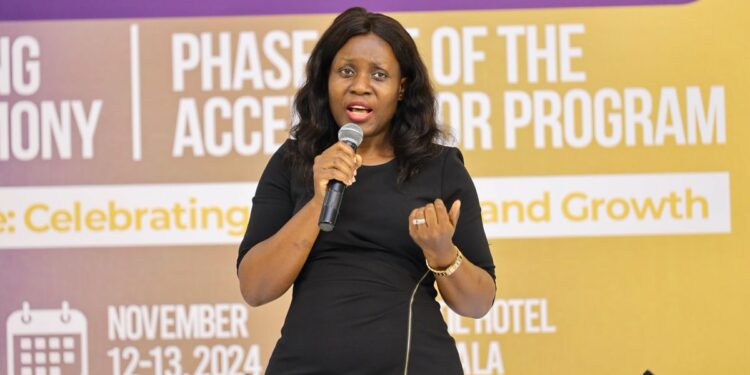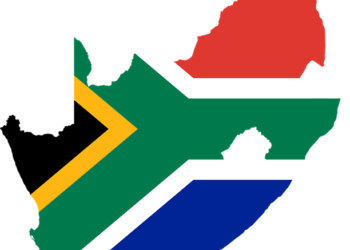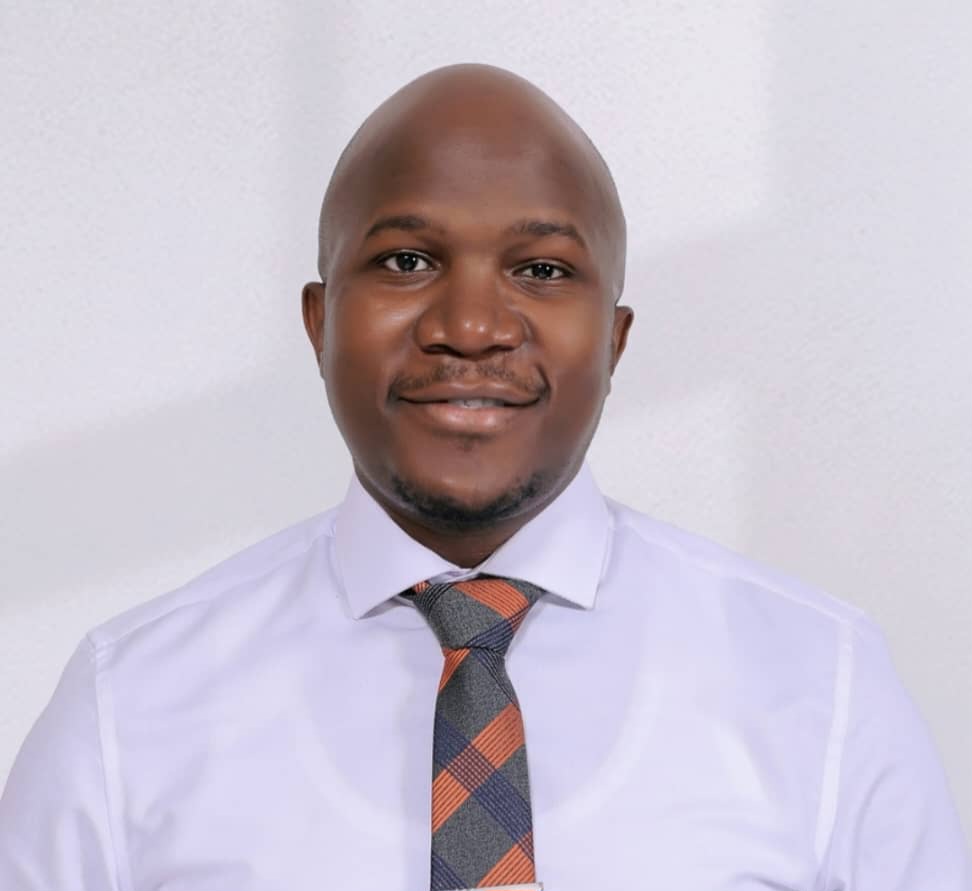At the closing ceremony of the Youth Startup Academy, Barbrah Birungi Mutabazi, co-founder of Hive Colab and founder of Women in Technology Uganda, and Rita Ngenzi, National Coordinator of Youth Startup Uganda, shared their vision for a stronger startup ecosystem in Uganda.
Mutabazi emphasized the need for different groups of government, investors, academia, and support organizations to work together. She highlighted the progress made over the past 15 years but pointed out a major challenge: limited access to diverse funding. “Our ecosystem is too focused on grants, making entrepreneurs chase funding instead of building sustainable businesses,” she said. “We need a mix of angel investors, venture capital, and government support.”
The duo highlighted the importance of local partnerships, the need for accessible capital, and the role of trust and shared goals in driving the nation’s entrepreneurial progress.
Barbrah Birungi Mutabazi emphasized the essential role of collaboration across all levels, from government to academia, to cultivate a fertile ground for innovation and entrepreneurship in Uganda. Reflecting on Hive Colab’s journey, she shared, “Fifteen years ago, we were just ideating. Today, we’re seeing results in the ecosystem. But for an ecosystem to thrive, it needs a coalition of key stakeholders who are all on the same page.”
Mutabazi observed that although Uganda has taken considerable strides toward fostering entrepreneurship, it still lacks essential elements such as access to diverse forms of capital. “While we’ve seen growth in collaboration, it’s not as strong as it should be,” she noted. “A variety of investors angel investors, venture capitalists, grants, and government support are necessary to create a balanced and sustainable ecosystem. Right now, our ecosystem is too grant-driven, pushing entrepreneurs to become grant-seekers instead of investable businesses.”
To Mutabazi, the solution lies in encouraging local innovators and support organizations to prioritize collaboration over competition. “There’s a need for a mindset shift where we see the bigger picture and understand that a rising ecosystem benefits us all,” she said. “We need to move away from thinking, ‘For me to succeed, you have to lose.’” She proposed that hubs and support organizations approach potential partners as a unified body, demonstrating a collective commitment to Uganda’s growth.
Echoing Mutabazi’s call for collaboration, Rita Ngenzi spoke on the importance of trust in creating sustainable partnerships and coalition-building. Reflecting on Uganda’s participation in the Youth Startup Academy, she stated, “Projects like YSAU serve as flagship initiatives.
They bring together diverse partners to support startups, and each partner has their language, priorities, and measures of success. Private sectors speak in terms of revenue, while social enterprises focus on impact. Merging these approaches requires trust and flexibility.”
Ngenzi pointed to lessons learned from South Korea, where the government plays an active role in supporting startups. “We learned from Korea’s success that government support—from funding to infrastructure to policy is a foundational part of any successful startup ecosystem,” she said. However, she stressed that Uganda’s private and public sectors need to find common ground, making sure that initiatives like YSAU receive consistent backing.
Mutabazi also pointed to a more practical solution: fostering knowledge-sharing and trust among startups to help each other secure funding. “If an investor values your business at $500,000, it doesn’t help to hold back and compete for more,” she explained. “Introduce them to other potential businesses for investment. By doing this, we are collectively building trust and creating pathways for each other.”
Mutabazi and Ngenzi’s remarks resonate as Uganda’s startup ecosystem matures and global interest in African tech continues to grow. Their speeches called for a coalition of government, academia, and industry players to support entrepreneurship by providing knowledge, capital, and mentorship. In Ngenzi’s words, “Collaboration is about learning to speak each other’s languages. When it works, it has the power to transform.”
Meanwhile, as Uganda aspires to become a leading tech hub in the region, the insights shared by these tech leaders provide a clear roadmap for building a vibrant and sustainable startup ecosystem.
Do you have a story in your community or an opinion to share with us: Email us at editorial@watchdoguganda.com













